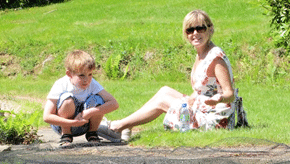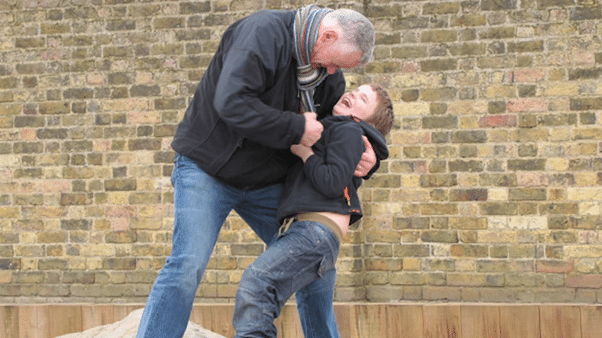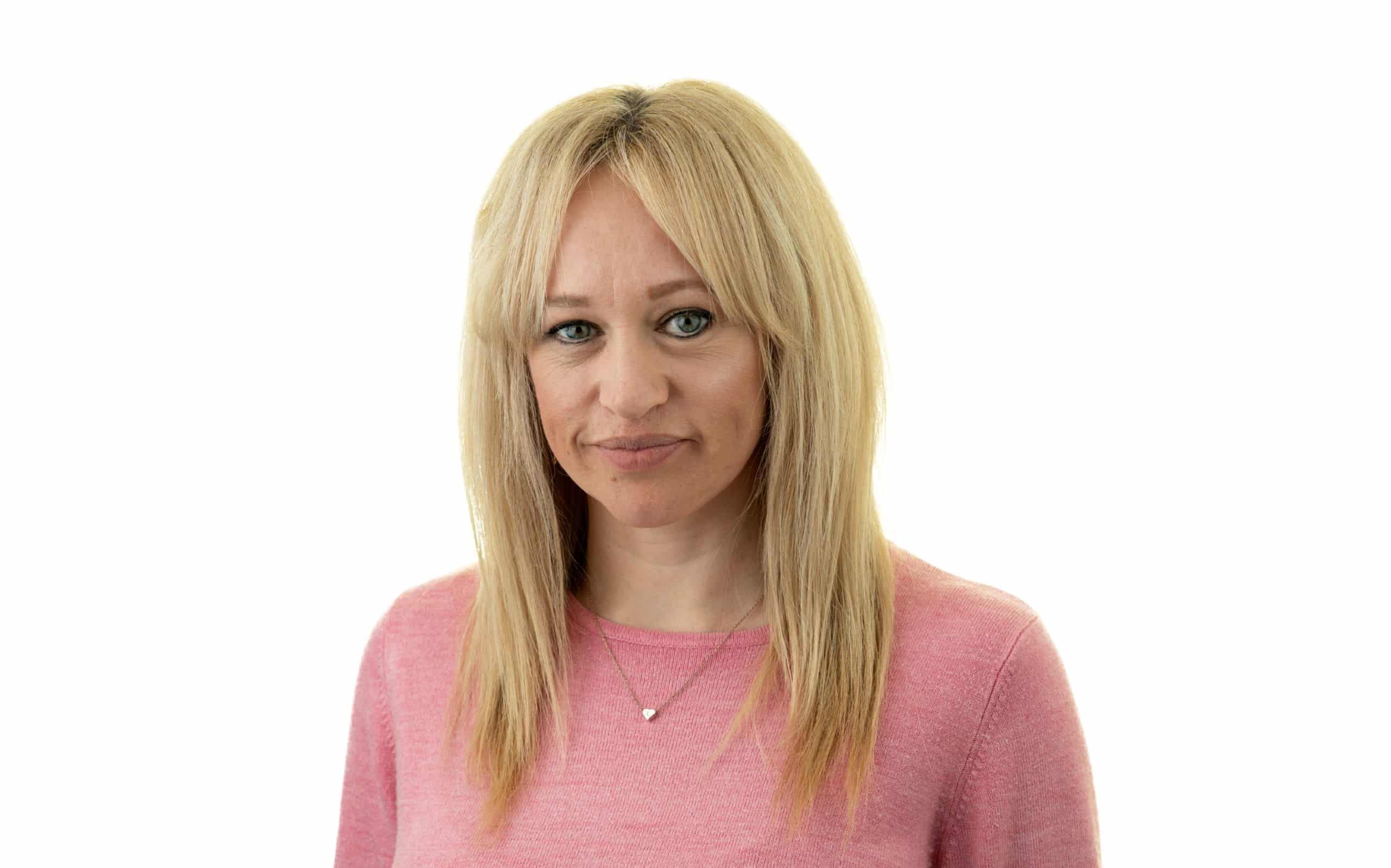
 " alt="">
" alt="">
Erb's Palsy Claims

Reviewed by
Peter Rigby - Managing Director of Medical Negligence | Last updated on: 4th April, 2025
We've got your Erb's Palsy Claim covered
- No win No fee
- Not just lawyers - real specialists
- No obligation
- UK's highest-rated medical negligence solicitors
At Patient Claim Line, our specialist Erb’s Palsy solicitors are highly experienced in handling medical negligence claims. We understand the emotional and physical challenges this condition brings for you and your child, and our team is here to help you pursue the compensation you deserve. Erb’s Palsy compensation can help you guarantee access to the best medical care and support to give your child the best possible future.
What is Erb’s palsy?
Erb’s Palsy is a type of birth injury caused by nerve damage to the brachial plexus that controls movement and sensation in the shoulders, arms and hands. This injury typically occurs during childbirth when excessive force is applied to a baby’s neck or shoulder.
The severity of Erb’s Palsy can vary depending on the extent of nerve damage. Some children may experience mild weakness in the affected arm, while others may face long-term challenges, such as limited mobility, lack of sensation or paralysis. Early diagnosis and treatment, such as physiotherapy or surgery, can significantly improve outcomes.
If your child’s Erb’s Palsy was caused by medical negligence, you may be entitled to compensation to cover the costs of treatment and support. Our expert Erb’s Palsy negligence solicitors are here to guide you through the claims process and fight for the compensation you deserve.
Living with Erb’s Palsy
From experience, we know that compensation received for Erb’s Palsy can make a huge difference. In more severe cases, children may require specialist care that continues into adulthood; compensation can help to cover this and any other financial costs that might arise, such as:
- Physiotherapy and private doctor appointments
- Home and vehicle adaptations, and other specialist equipment
- Loss of income
- Private tutoring
To ensure that you are receiving the right compensation amount for your case, we will consider factors such as the life-long effects of injury, the emotional and physical pain suffered and your child’s ability to be independent.
Find out if you
have a claim
Take the 10-second claim test
Free Advice
03300 080 352
claim form
We're the highest-rated No Win No Fee medical negligence solicitors on Trustpilot
Treatment
Since most newborns will recover on their own, your doctor will monitor your child regularly to track nerve recovery. Nerves heal very slowly and full recovery can take up to two years. If you file a successful Erb’s Palsy compensation claim, part of the compensation will cover ongoing and future medical care, including treatment.
Nonsurgical Treatment
The primary treatment for Erb’s Palsy is daily physical therapy.
Since a baby may be unable to move the affected arm independently, parents need to actively help by keeping the joints flexible and the muscles strong. A doctor or physical therapist will guide you in performing exercises to maintain the health of your baby’s arm.
Daily physical therapy and range-of-motion exercises should start around three weeks of age. These exercises will help preserve the range of motion in the shoulder, elbow, wrist and hand, preventing joint contracture, a condition where the joint becomes permanently stiff.
Surgical Treatment
If there is no progress after the first three to six months, your doctor may recommend surgery to improve the outcome.
- Nerve Graft: if there’s nerve damage, a donor nerve graft from another part of the child’s body may be used to repair a ruptured nerve.
- Nerve Transfer: in some cases, a nerve from another muscle may be used to restore some arm function.
Nerves heal very slowly, so it may take several months or even years for the repaired nerves at the neck to reach the lower arm and hand muscles. After surgery, your doctor or physical therapist will give you exercises to do at home to strengthen your baby’s muscles and improve their range of motion. Nerve surgery usually does not restore full, normal function and is generally less effective in older infants.
Many children with brachial plexus injuries will continue to experience some weakness in the shoulder, arm or hand. Other surgical options may be available later to further improve function. As your child grows, your doctor will discuss treatment options and provide recommendations tailored to your child’s unique condition.
Erb’s palsy symptoms
The symptoms of Erb’s Palsy may become noticeable shortly after birth and can include:
- Weakness in the affected arm: the arm may appear limp or have reduced strength.
- Limited movement: difficulty lifting, bending, or rotating the arm or shoulder.
- Lack of sensation: reduced or absent feeling in the arm, hand or fingers.
- Paralysis: in severe cases, the arm may have no movement at all.
- Abnormal positioning: the arm may rest in an unnatural position, such as being bent at the elbow or rotated inward.
- Delayed development: as the child grows, they may have trouble meeting developmental milestones related to arm movement, such as grasping objects or crawling.
What is an Erb’s Palsy claim?
An Erb’s Palsy claim is a type of medical negligence claim made when a child’s Erb’s Palsy was caused by mistakes or improper care during childbirth. If healthcare professionals failed to take appropriate steps to manage delivery complications, or used excessive force during birth, they may be held responsible for the injury.
The goal of an Erb’s Palsy claim is to secure financial compensation for the child and their family. Additionally, pursuing an Erb’s Palsy claim can help bring accountability, making it less likely that similar medical mistakes will happen in the future.
Who can bring an Erb’s Palsy negligence claim?
If you believe the medical team assisting with your delivery did not take the proper or adequate steps to prevent Erb’s Palsy from affecting your child, you may be eligible to file an Erb’s Palsy compensation claim on their behalf.
You could be eligible to make a claim if any of the following occurred during the birth of the individual with Erb’s Palsy:
- Shoulder dystocia: this occurs when the baby’s shoulder becomes stuck behind the mother’s pelvic bone during birth, placing significant strain on the neck and shoulder nerves.
- Excessive force: the use of forceps or vacuum devices (ventouse) to assist with delivery can cause undue pressure on the baby’s neck and shoulders, increasing the risk of nerve damage.
- Prolonged labour: difficult or delayed deliveries may lead to increased pressure on the baby’s nerves.
- Breech births: when a baby is delivered feet or bottom first, the brachial plexus nerves may be injured during delivery.
- Large birth weight (macrosomia): babies with a higher birth weight are at increased risk of delivery complications, including injuries to the brachial plexus.
- You weren’t properly informed about delivery risks: alternative options such as a caesarean weren’t raised, resulting in preventable injuries.
The best way to know if you can claim for Erb’s Palsy negligence is by getting in touch with our team. They will listen carefully to the details of your experience and provide clear, empathetic guidance on if and how you should proceed with a claim.
What Compensation Can You Claim?
Making a claim can feel overwhelming, but our team of Erb’s Palsy solicitors is here to make the process as simple as possible. We’ll work with you to gather evidence, including medical records, expert opinions and witness statements, to build a strong compensation case.
The compensation you or your child may be eligible for will depend on the extent of the damage and how it will impact both the child’s and parent’s lives moving forward. This can include:
- Costs for care, physiotherapy and rehabilitation
- Expenses for corrective surgeries, treatments and medications
- Modifications to your home or vehicle to accommodate the child’s needs
- Loss of income if a parent needs to take time off work to care for their child
- Loss of future earnings if the disability is expected to impact the child’s earning potential as they grow
While an Erb’s Palsy claim can only be made on behalf of the child, the mother may be able to pursue compensation under a separate birth injury claim if she experienced any physical injury or emotional distress during the birth.
How to start an Erb’s Palsy Claim?
If you choose to make an Erb’s Palsy negligence claim, here’s how the process will look, step by step:
- You reach out to our team to make an initial inquiry about your Erb’s Palsy claim. Our staff will ask the necessary questions to ensure our legal experts can quickly assess whether you have a valid case. We aim to get back to you as quickly as possible with the decision on whether we can proceed with your claim.
- If we take on your case, our team will begin gathering all relevant evidence, including medical records, birth and delivery documentation and witness statements if needed, to build a clear understanding of what happened during the birth.
- Once we have all the necessary information, we will negotiate directly with the responsible parties or their representatives. Our goal is to secure compensation for medical expenses, ongoing care costs, rehabilitation, and any other losses resulting from the negligence that led to the Erb’s Palsy.
- We only ever operate on a No Win, No Fee basis; this means you won’t pay anything upfront for your claim. If we win, only a small percentage of your compensation will cover our solicitor’s fees.
Time Limits on Erb’s Palsy Claims
The time limit for Erb’s Palsy claims can depend on who is making the claim. If you are a parent/guardian claiming on behalf of your child, you have until your child’s 18th birthday. If you have personally suffered from Erb’s Palsy and have turned 18, you have until your 21st birthday to make a claim.
What evidence is needed to support an Erb’s Palsy claim?
Raising a successful Erb’s Palsy negligence claim requires strong evidence to be collected to demonstrate that medical negligence has occurred and that the condition is not merely a coincidence. This might include:
- Detailed medical records of the pregnancy, labour and delivery, including any notes regarding the baby’s condition and any complications encountered during birth.
- Reports from medical experts, such as pediatricians, neurologists and obstetricians who can assess the child’s condition and provide an opinion on the cause of the injury.
- Statements from parents, family members or any other witnesses who were present during the birth.
- Photographs or videos documenting the child’s condition and limitations.
Gathering and presenting this evidence is crucial to increase your chances of a successful outcome and our expert lawyers have years of experience doing just that. Get in touch with us today.
Why Choose Patient Claim Line for your Erb's Palsy Claim?
Not just lawyers — medical negligence experts
Patient Claim Line was established in 2014 and consists of a team of medical lawyers specialising in medical negligence claims.
At Patient Claim Line we have more than 100 solicitors with a combined experience of over 400 years and they will work on your behalf to achieve the best result possible for you.
It’s not enough to use a solicitor who sometimes covers medical negligence. You need someone who knows this area through and through. That is what the solicitors here at Patient Claim Line do. They deal exclusively in this area of law and are experts in the field.
Frequently asked questions about Erb's Palsy Claims
Our expert legal team answer your questions about making an Erb's Palsy Claim
The time limit for Erb’s Palsy claims can depend on who is making the claim. If you are a parent/guardian claiming on the behalf of your child, you have until your child’s 18th birthday. If you have personally suffered from Erb’s Palsy and have turned 18, you have until your 21st birthday to make a claim.
We advise that you contact our team as soon as possible in order to ensure the most successful outcome and to allow our medical negligence experts enough time to collect evidence.
Erb’s Palsy is most commonly caused at childbirth, typically through a traumatic birth. Therefore, Erb’s Palsy negligence claims are usually made on the child’s behalf, by the parent as children under the age of 18 cannot raise a claim themselves.
A parent, a grandparent or even an older adult sibling, acting in the best interests of the child, should bring the medical negligence claim for the child. That responsible person will be known as the Litigation Friend; for more information take a look at our guide to making a claim for someone else.
Erb’s Palsy compensation is a fee received from the NHS trust, or private medical provider, responsible for a case of Erb’s Palsy medical negligence. The aim of the compensation is to provide financial support to families affected by this condition, covering things such as treatment and therapy costs, loss of earnings, childcare costs, and the child’s suffering.
Raising a successful Erb’s Palsy negligence claim requires strong evidence to be collected in order to demonstrate that medical negligence has occurred and that the condition is not merely a coincidence. This might include:
- Detailed medical records of the pregnancy, labour, and delivery, including any notes regarding the baby’s condition and any complications encountered during birth.
- Reports from medical experts, such as pediatricians, neurologists, and obstetricians, who can assess the child’s condition and provide an opinion on the cause of the injury.
- Statements from parents, family members, or any other witnesses who were present during the birth.
- Photographs or videos documenting the child’s condition and limitations.
Gathering and presenting this evidence is crucial to increase your chances of a successful outcome, and our expert lawyers have years of experience doing just that. Get in touch with us today.
Meet our Erb's Palsy Team
Case Study
Vincent's Story
"He's always there for us"
At the age of 2 we noticed our son Vincent had trouble with his hearing. We had this testing over a number of years and were repeatedly told there was nothing wrong.
Initially we thought this was a speech and language problem, this wasn't the case. It took 4 to 5 years of assessments, with the constant response that there was nothing wrong with his hearing. A different test was them carried on Vincent overnight where it was found he was profoundly deaf.


After years of frustration we were finally able to provide Vincent with the support he required and received an implant. This has enable Vincent to be able to hear. The support from our solicitors has enabled to to gain access to specialist which have supported Vincent in closing the gap in his speech he lost out on to his peers.





